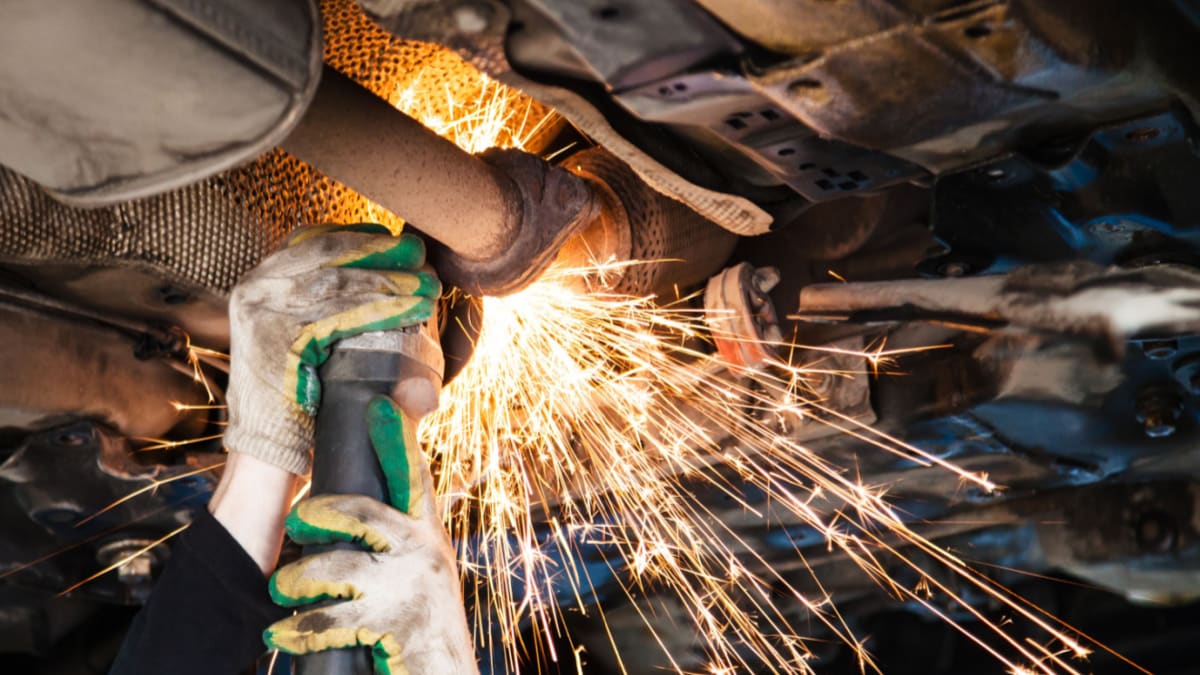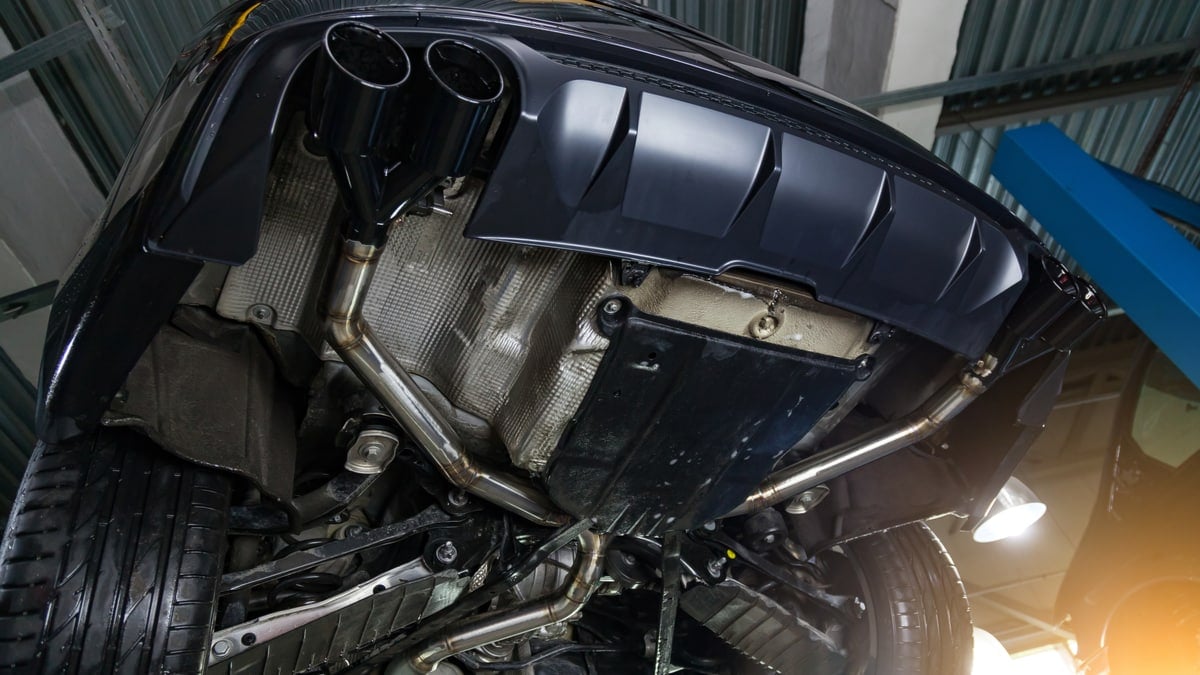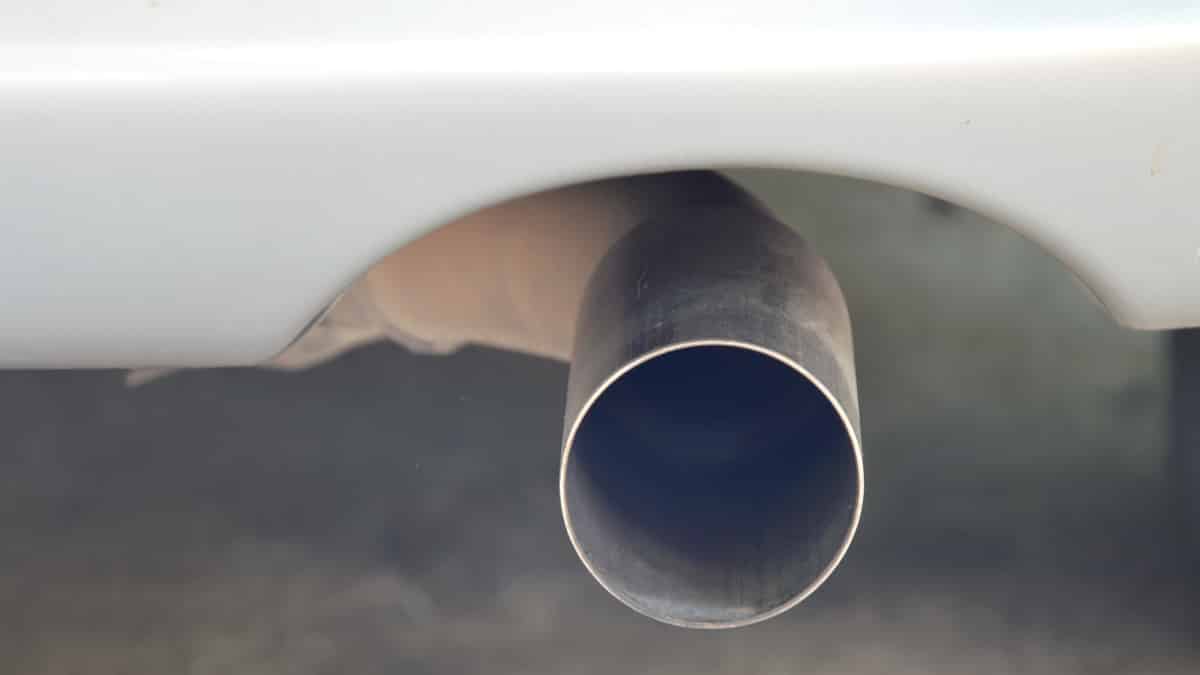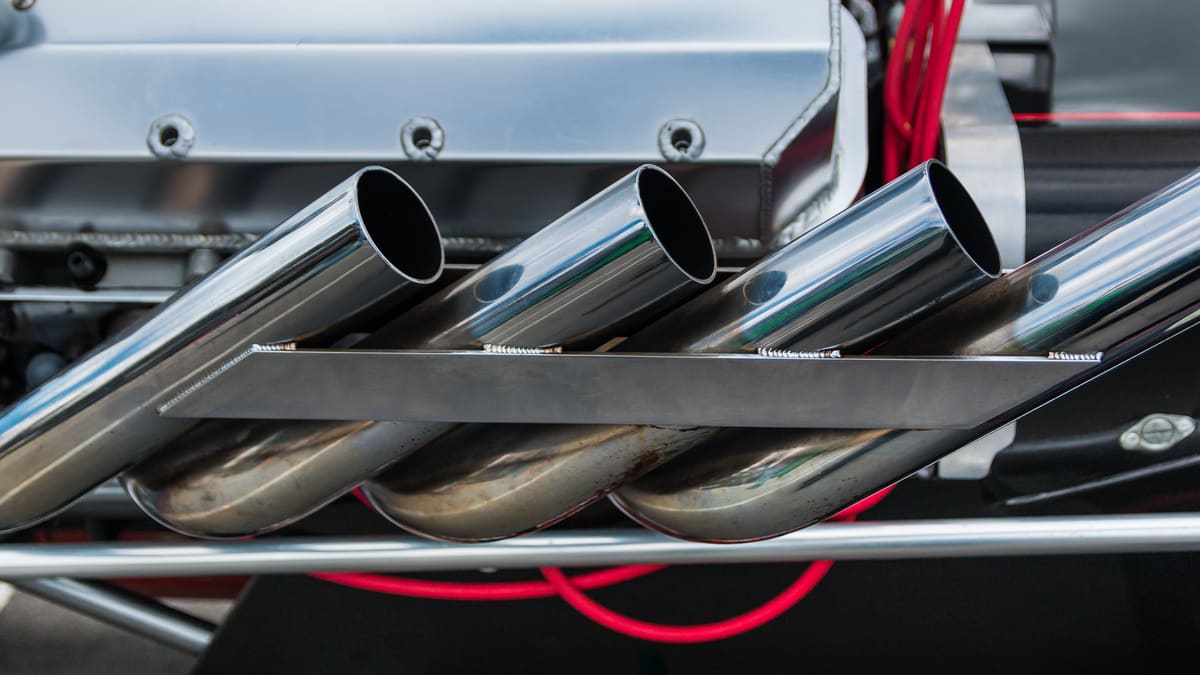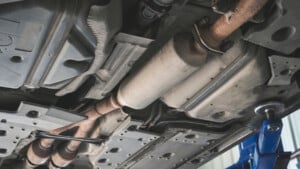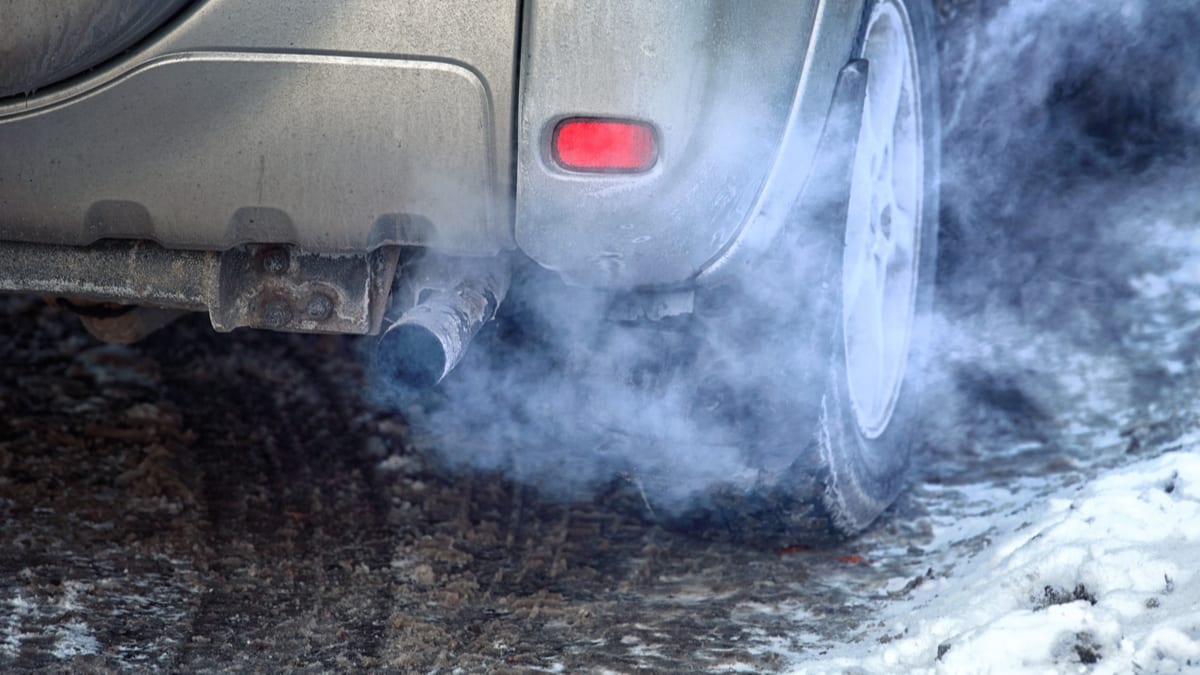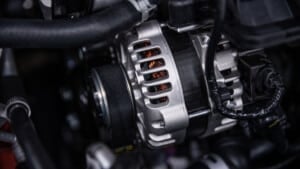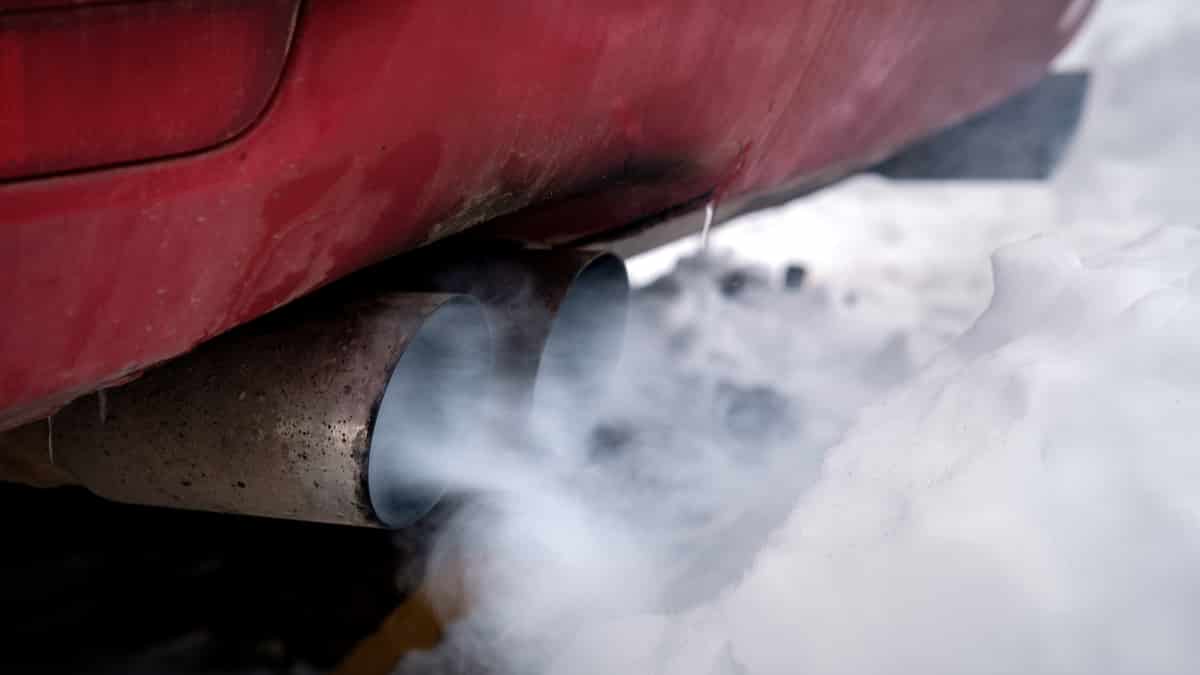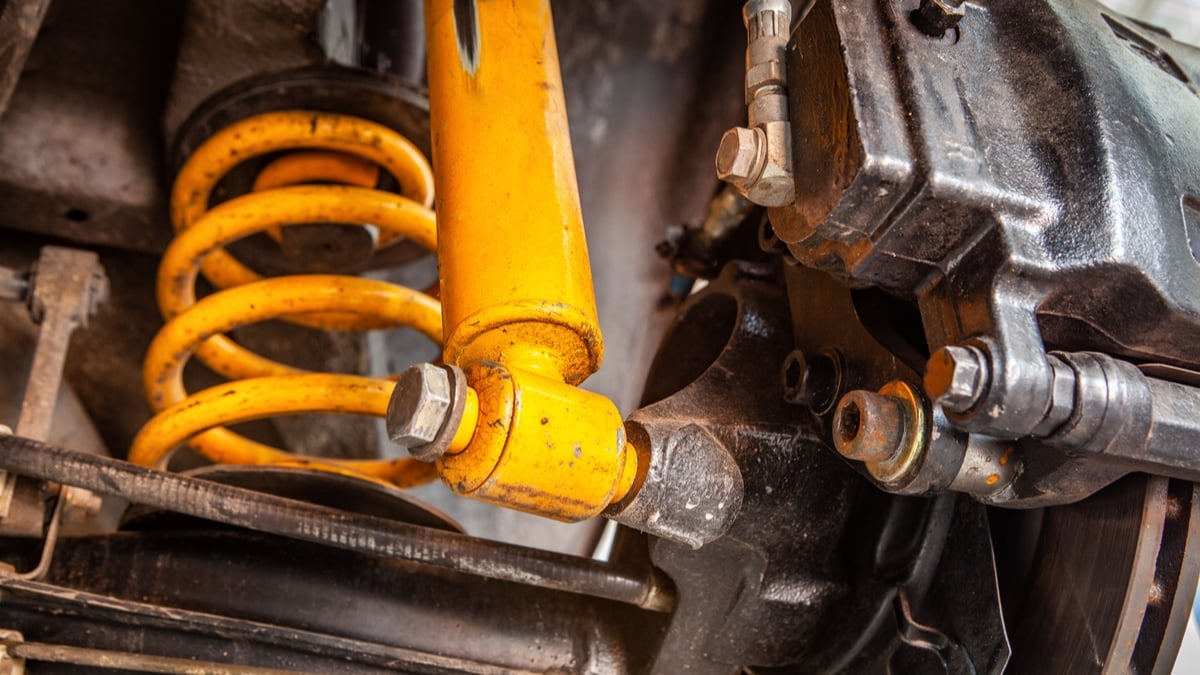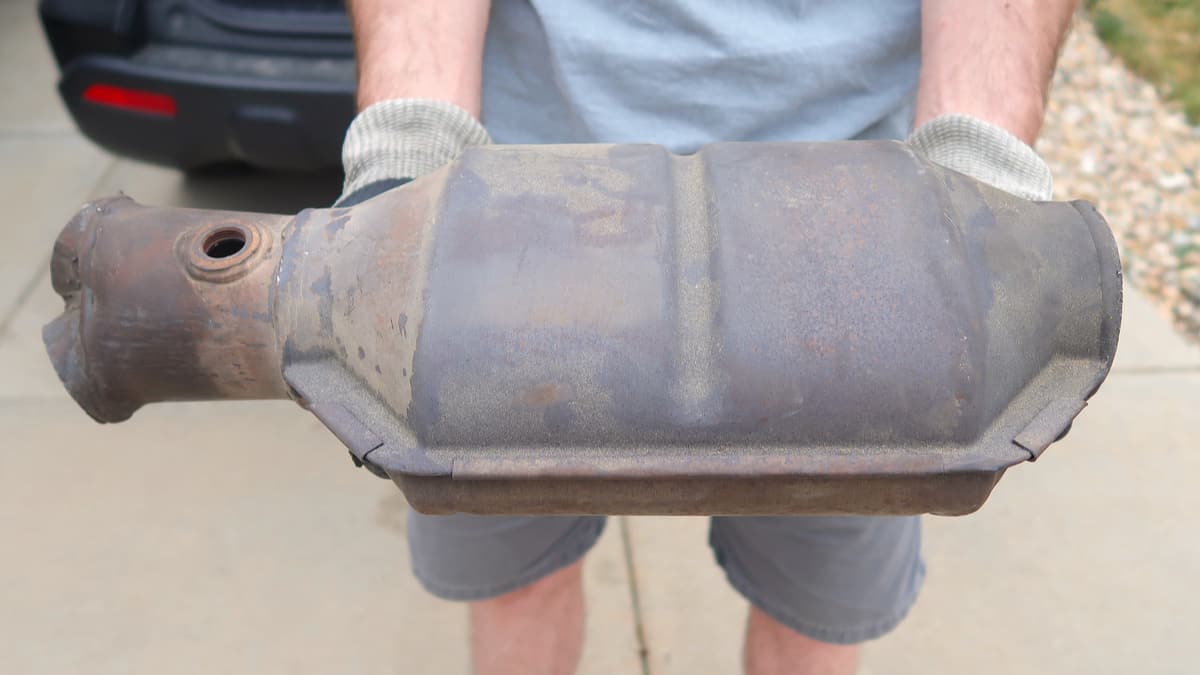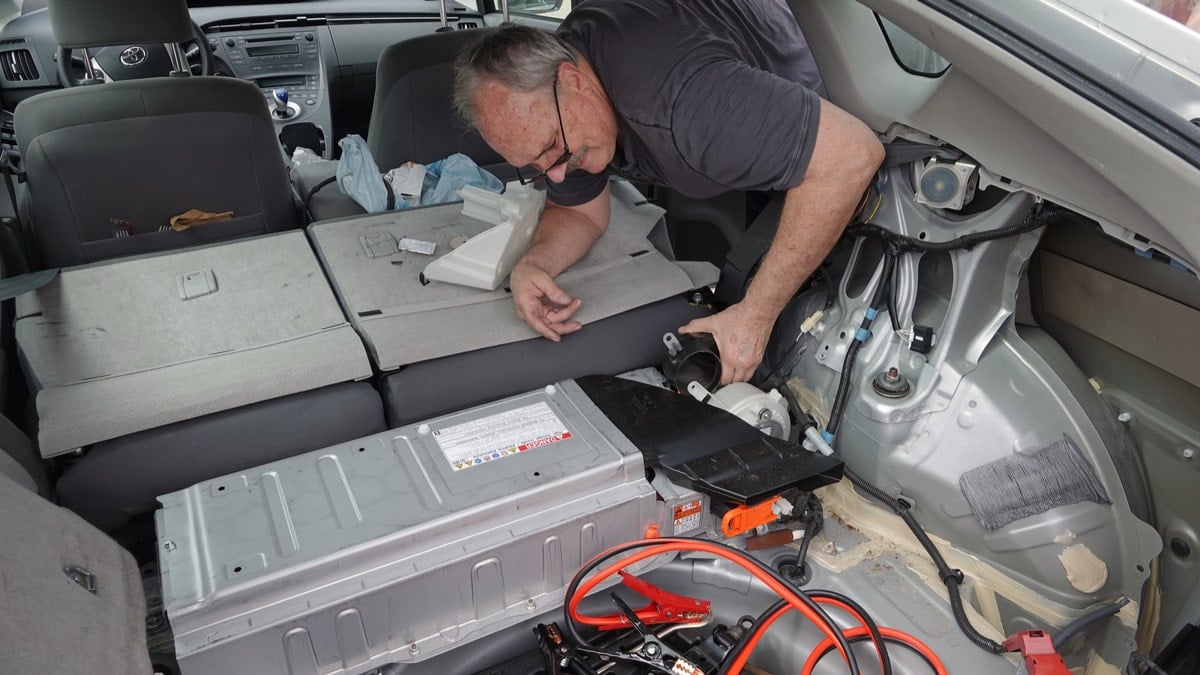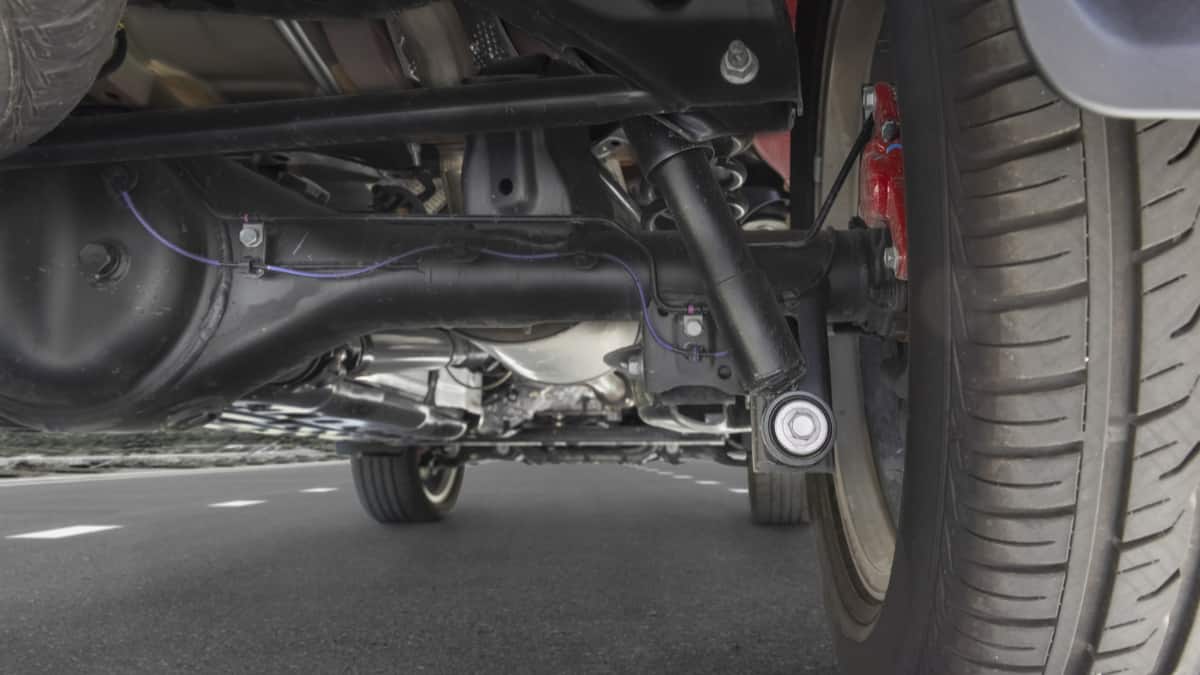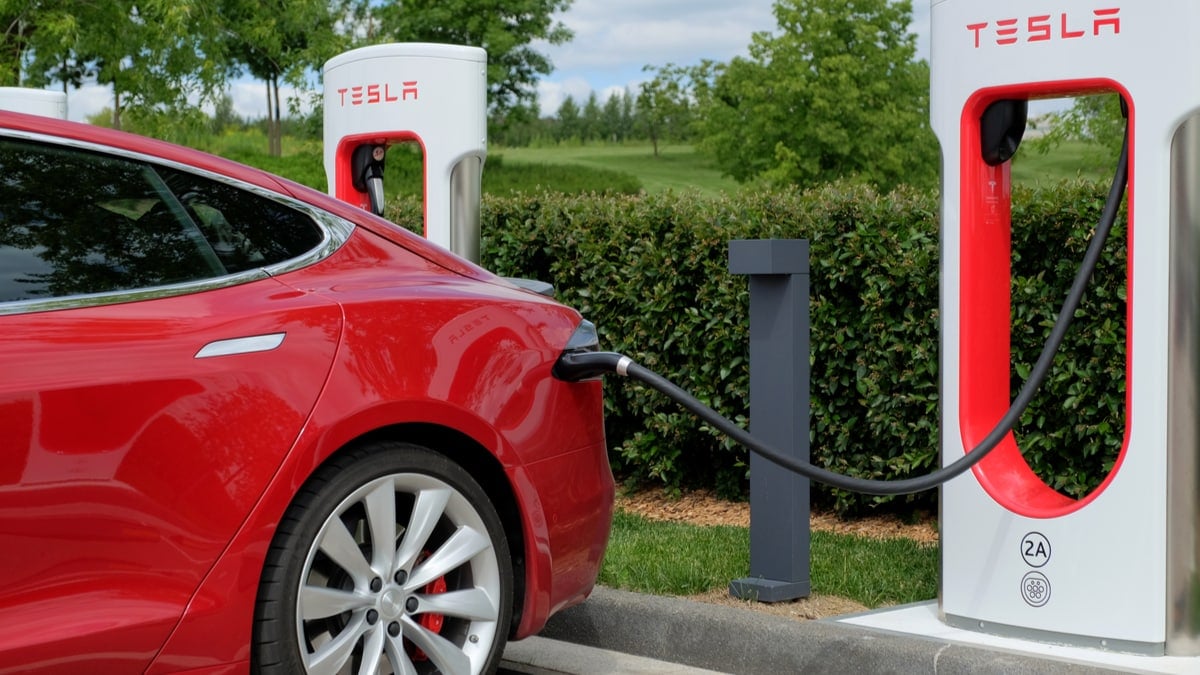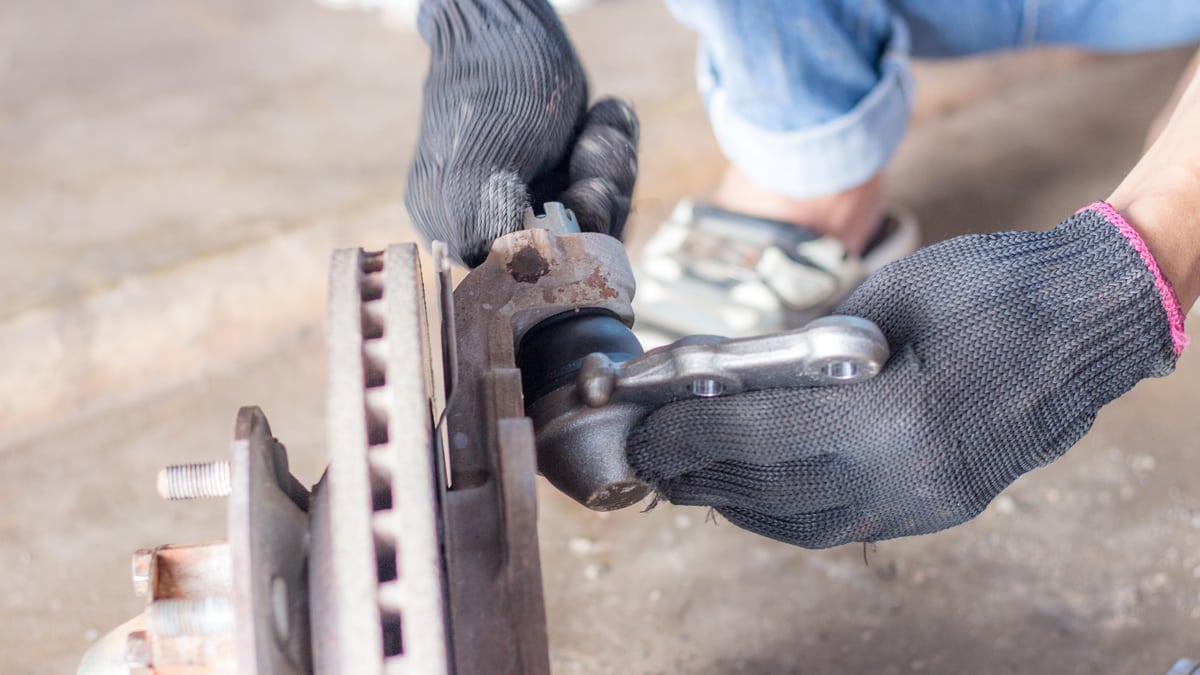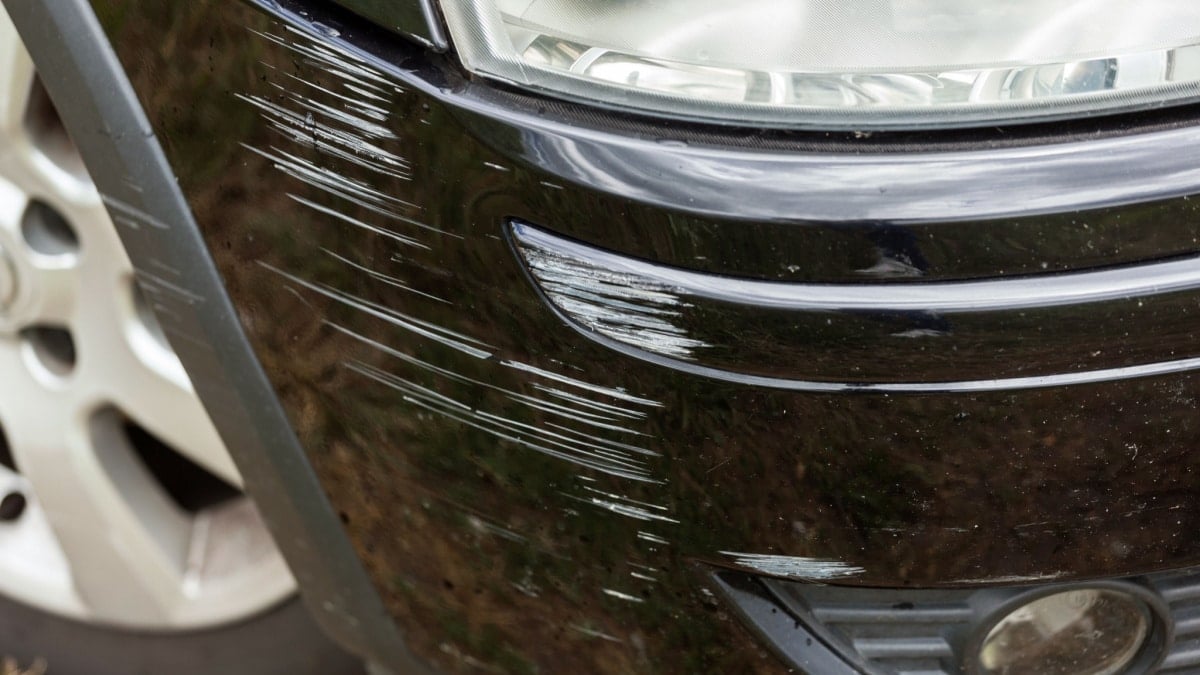Is your exhaust louder than normal, or are you ready for an upgrade? Either way, there are many options available if you want to replace an exhaust system. You can choose some minor replacements or choose a major overhaul of the entire system. So, what is the average exhaust system replacement cost, and is it worth it?
In this guide, we look at the main parts making up the exhaust and discuss the replacement cost for each. We also discuss what factors play into the replacement cost for an exhaust. At the end of our article, you’ll also gain a few answers to questions that have probably been bothering you.
How Much Does It Cost To Replace An Exhaust System?
On average, it can cost between $500 and $1,500 to replace the entire exhaust system. If you only want to replace single parts or systems, such as the muffler, downpipe, exhaust manifold, catalytic converter, or do a cat-back exchange, your cost will be less.
Let’s look at these parts and options, so you can decide what’s best for your vehicle. While these don’t make up every part, they are the major components replaced.
1. Muffler
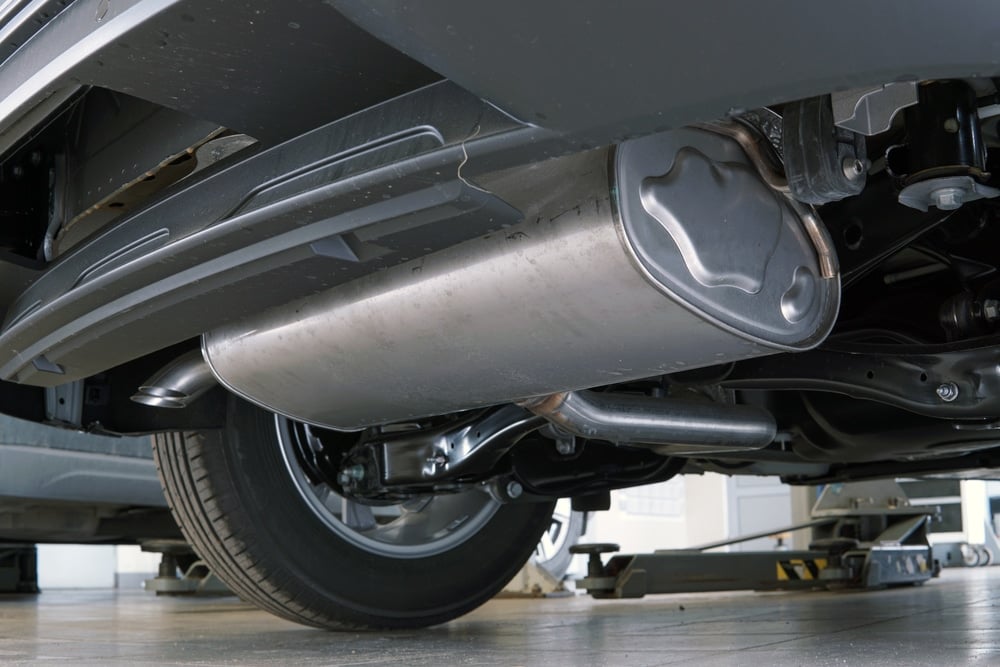
The automotive muffler is responsible for quieting the noise coming from the engine. It creates back pressure to improve the performance as well.
On average, you may spend $100 to $300 to replace a muffler. However, performance mufflers can cost far more because they create better sound and improve engine backpressure.
RELATED: Muffler Delete – What It Is & What You Should Know
2. Exhaust Manifold
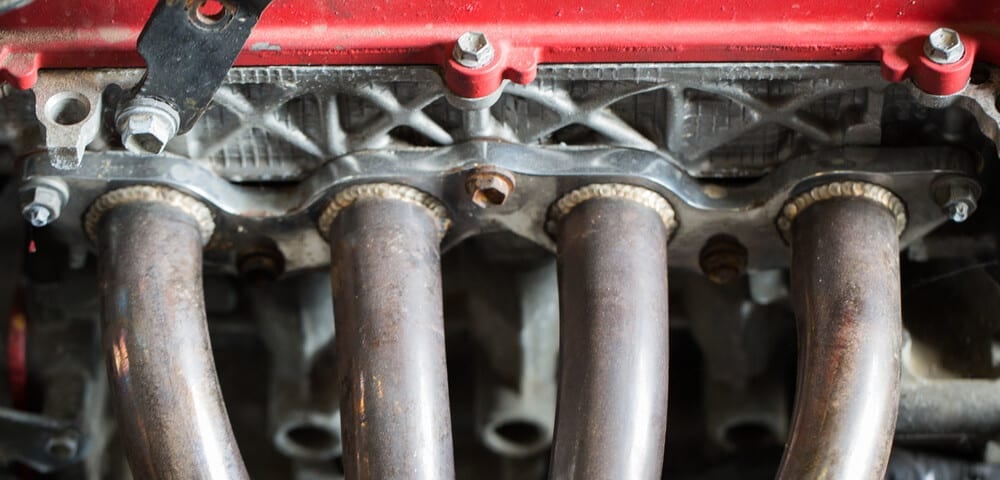
The exhaust manifold connects to the motor. It’s used to direct exhaust gases away from the engine. It’s a collection of pipes that ensure combustion fumes don’t get back into the cabin. Technically, it’s the first component making up the exhaust system.
You can expect to spend between $350 and $1,000 to replace the exhaust manifold, as it’s not normally an easy job to perform. Exhaust manifolds can be made from stainless steel or cast iron, which also affects the pricing.
3. Downpipe
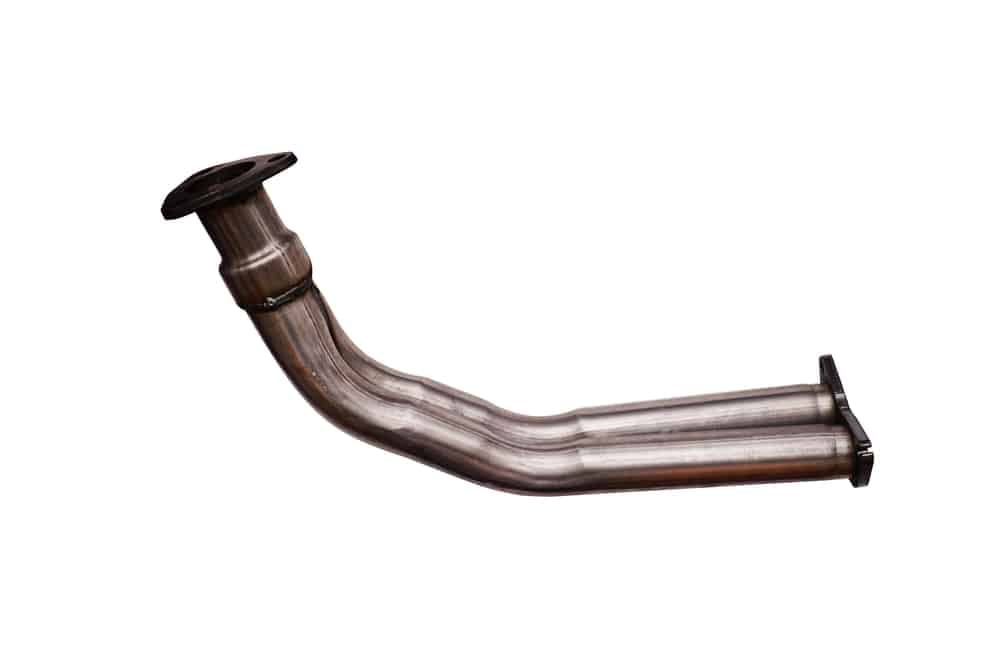
The downpipe is responsible for connecting the exhaust manifold to the catalytic converter. It continues to direct the exhaust away from the vehicle. Some people prefer to change the factory downpipe with one that is smoother and allows for more flow.
Overall, you may spend $50 to $300 to replace the downpipe. However, the prices can go higher based on some of the factors we list later in the article.
4. Cat-back
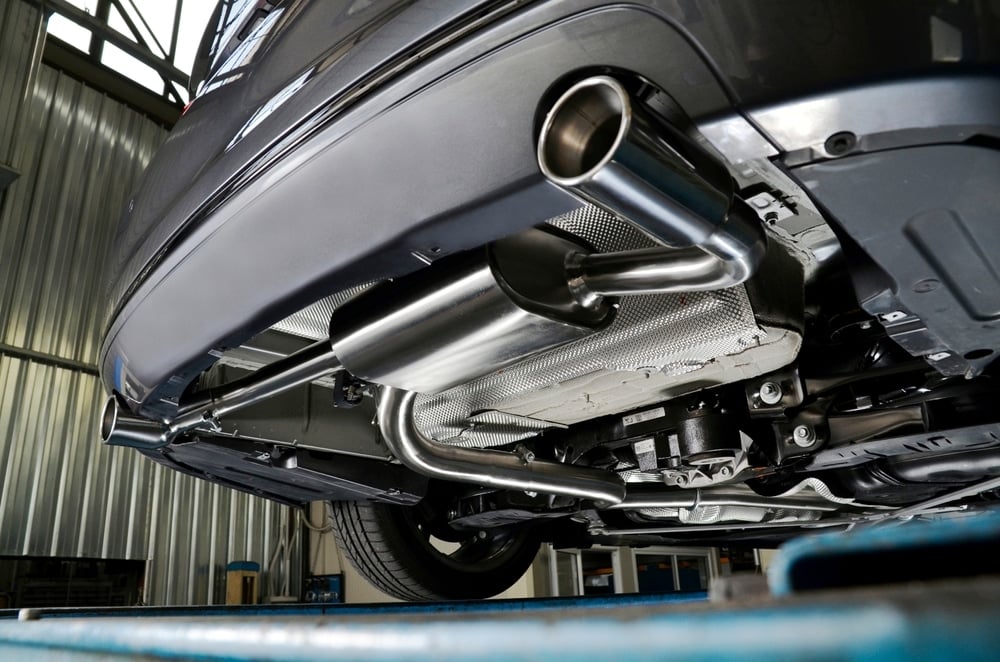
The Cat-back exhaust system includes everything running from the catalytic converter outlet to the exhaust tips. Most exhaust systems have a large pipe that runs from the converter to the muffler. There can also be a resonator installed before the muffler that controls some of the sound coming from the exhaust.
A performance cat-back exhaust adds different turns to reduce back pressure. Depending on the type of exhaust you want, you may spend $250 to $2,000 to swap this out.
The cat-back system replacement is the most common type of exhaust replacement, as you get almost a new exhaust system without replacing the expensive parts such as the exhaust manifold or catalytic converter.
5. Catalytic Converter
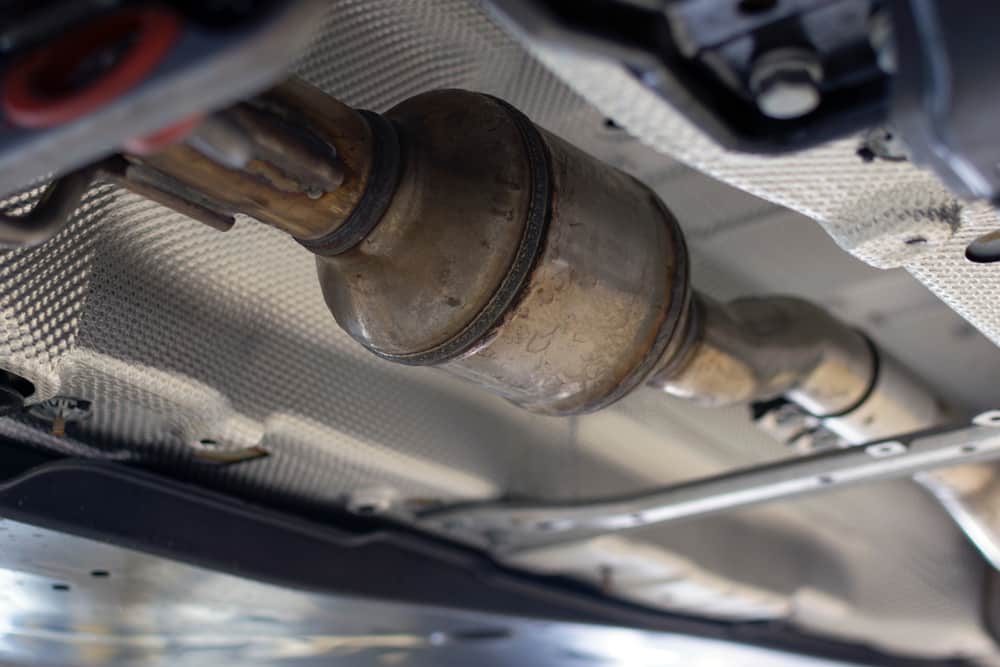
The catalytic converter creates a chemical reaction with the exhaust gases to make them into something less harmful to the environment. It’s needed to reduce emissions. In fact, you will have a hard time passing an emissions test if the catalytic converter isn’t working right.
The catalytic converter is one of the more expensive parts to replace. On average, it can cost $300 to $2,000 or more. This high price isn’t usually for the labor, but the material makes the price go up. The precious metals needed for the chemical reactions are what makes this part so expensive.
6. Full Exhaust System
To replace the entire exhaust, you are going to easily spend $1,000 or more. Some people choose to do this all at once, while others break up the cost over time and work on the exhaust slowly.
Most vehicles don’t need an entirely new exhaust system, even if you are looking to increase performance or sound. In many cases, you can replace just a few key parts to get the desired outcome. The cat-back replacement is much more common than the whole exhaust system.
Factors Affecting The Exhaust System Replacement Cost
To determine the approximate cost for replacing the exhaust system, you have to look at several factors. Some of the most important are the parts you choose to replace, the material used, the type of manufacturer and local labor rates.
1. Parts Replaced
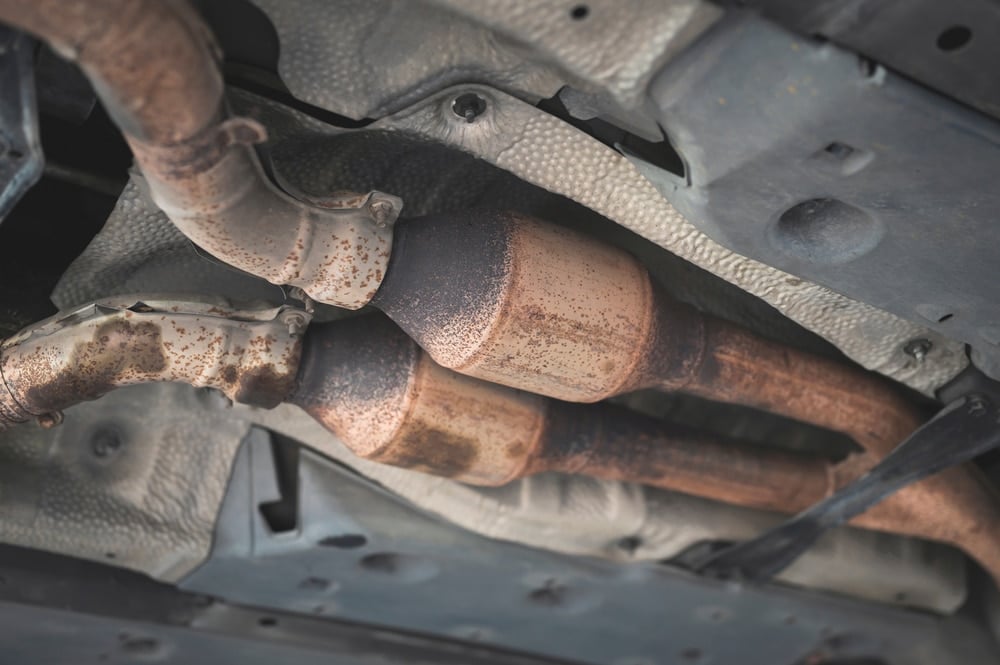
We’ve already shown you how much money each part or system can affect the price. If you are only replacing a muffler, you are going to spend far less than if you change out the entire cat-back system.
For this reason, it might make sense to choose one or two critical parts and replace them instead of the entire system. You can make a big difference while saving money.
Additionally, you must consider the added components that need to be replaced with the larger pieces. For example, you are going to need some money for gaskets as you replace the exhaust. There may also be times when a new oxygen sensor is required. All of these costs add up.
2. Exhaust System Material
Depending on the part, several different types of materials are used for the exhaust. You will find some parts made from mild steel, which is cheaper than others, but also rusts quickly.
Galvanized aluminum offers better noise reduction and resists corrosion, but the cost goes up slightly. Additionally, stainless steel is one of the better options because of how sturdy it is, but it also tends to be one of the most expensive.
3. OEM or Aftermarket
There are two types of parts you can choose. There are the Original Equipment Manufacturer (OEM) or aftermarket parts. OEM parts are those made by the car manufacturer. They are identical to the equipment that was on the car when it was rolled off of the assembly line. These often cost more than a comparable aftermarket replacement.
However, there are some aftermarket companies that are going to cost more than OEM. If you are looking for performance parts, you can expect to pay more.
RELATED: OEM vs. Aftermarket Parts: Differences and Which is Better?
4. Make/Model of Car
It would be impossible to determine the exhaust replacement cost without looking at the type of vehicle you drive. Some vehicles have more expensive parts than others.
For example, your luxury car is likely going to cost more than the American-made compact car. You can get a good estimate by pricing the parts online.
5. Labor Rate
Mechanic labor rates per hour are different throughout the country. If you live in an urban environment, you can expect to pay a higher labor rate. The same is true if you choose to get your automotive work through a local dealership.
If you want to save money on labor, consider looking outside of a busy area. You can find reliable mechanics by searching online. As professional technicians, we recommend reading through online reviews and checking with your friends and family to see who they recommend.
Do I need to replace the entire exhaust system?
Normally, you can just replace the part that is failing unless you are looking for increased performance. You may need to replace major parts of the system for leaking, corrosion or punctures. You may also choose to upgrade if you want a different exhaust sound from your car.
Is it worth replacing the exhaust on an old car?
Most parts of the exhaust will last anywhere from two to ten years. Generally, the parts don’t fail at the same time, so it might make sense to replace failing exhaust components, even if the car is old. Evaluate the cost of repair and the benefits received from it to determine its worth.
Can I drive with a bad exhaust system?
There shouldn’t be any reason why driving would be impossible, but that doesn’t mean you should. As the exhaust is broken, dangerous gases could escape into the environment. They may also be leaking into the cabin, which could cause serious health concerns.
How long does it take to replace an exhaust system?
If a simple replacement is needed, such as a muffler, the job may only take an hour or two. More complicated procedures, such as replacing the exhaust manifold, can take half a day or a full day, depending on the type of vehicle you drive.
What causes the exhaust system to go bad?
The exhaust system sees a lot of abuse. Vibrations are one of the leading reasons for failure. Additionally, moisture is an enemy of the system, often leading to corrosion and rust. If the vehicle is taken off-road, the added dirt can accelerate the exhaust wear.
What is the average life of a car exhaust?
There are many parts included in the exhaust system. Each of these parts has a different lifespan, typically ranging from two to ten years. Normally, all of the parts won’t fail at the same time, allowing you to replace parts only as needed.
If you’ve been thinking about replacing parts of the exhaust system, you want to get a good estimate first. Seeing how expensive some of the parts and jobs can be, it’s important to budget ahead of time. We recommend getting quotes from several shops before you make your decision.
Additionally, you may be able to perform some of the work yourself to save money. If you have somewhere to work on the vehicle and the tools to complete the job, go ahead and give it a try. However, we never recommend working on parts you are unfamiliar with. Doing so could create more work, especially if you break something that costs a lot of money.
